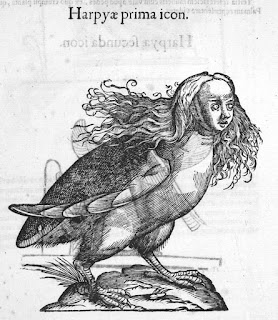The Medieval crusades have been seen as something very brave and honorable, but not all of them were either. One of the episodes which it's impossible to forget even today is the Children's Crusades in 1212. There were two of them and the first one was instigated by a 12 year old shepherd called Stephen (or Etienne). He approached the French king Philip and handed him "a letter from Jesus" whom he said had appeared to him while he was tending the sheep. Presumably Jesus had ordered him to go and preach the Crusades to the public. However, the king didn't believe him or wasn't too impressed by him, but this young boy of 12 was undismayed by such a setback which might have discouraged anybody else. He started to preach wherever he had a chance to bring out the message to the public.
Actually, he seems to have been an oral genius who caught the attention of a lot of devout Christians. Some of these were circa 20-30,000 thousand children whom he convinced to follow him. Several of these children were of noble birth and must have eloped their wealthy homes to join his Christian "army". At Marseilles two merchants, who went by the nicknames of Hugh the Iron and William the Pig, offered them ships, free of charge - and from then on the child Crusaders are lost to history for many years. They disappeared and were not to be seen or heard of until the fate of some of them was disclosed 18 years later.
In Germany a boy by the name of Nicholas entered on the same course as the first child Crusaders. He and his cohorts - also many girls - set out on their way to Palestine, but their losses were heavy, due to starvation and other hardships. When many of them gave up their plans to go to Palestine they were too exhausted to return home, so they decided to stay where they were, i.e. in Italy. Some of the dead children's parents were so enraged by Nicholas, who by this time had disappeared, that they caught his aged father and executed him as a substitute for his son.
As to Stephen and his followers who had set out in three ships then two of these were shipwrecked and all aboard drowned. Their sad fate was disclosed to their relatives when a young priest returned home to Europe after 18 years of captivity in a Muslim country. He told them that those on the third ship were captured and taken to Muslim slave markets where they were sold. Thus the relatives learnt the hard way that those two merchants who had proposed to help the children had betrayed them to the point of setting them up for sale in a Muslim slave market. However, some years later they in their turn were hanged for their harebrained attempt to kidnap the Emperor Frederick.
Some of the merchandised Christian children were killed for not being willing to accept Islam, but others were lucky enough to be bought by the governor of Egypt, al-Kamil, who treated them very kindly and set them to work as interpreters, teachers, etc. without demanding that they embraced the Muslim faith.
All in all these sad stories of committed, but betrayed children should be better investigated than they are. Most of them are mere myths, but it's a historical fact that these groups of children set out as crusaders just as did the grown-ups. In many respects both these groups were deluded by their own all too high ideals, dreams and hopes, but also haughtiness as they felt that they alone had religion.



















